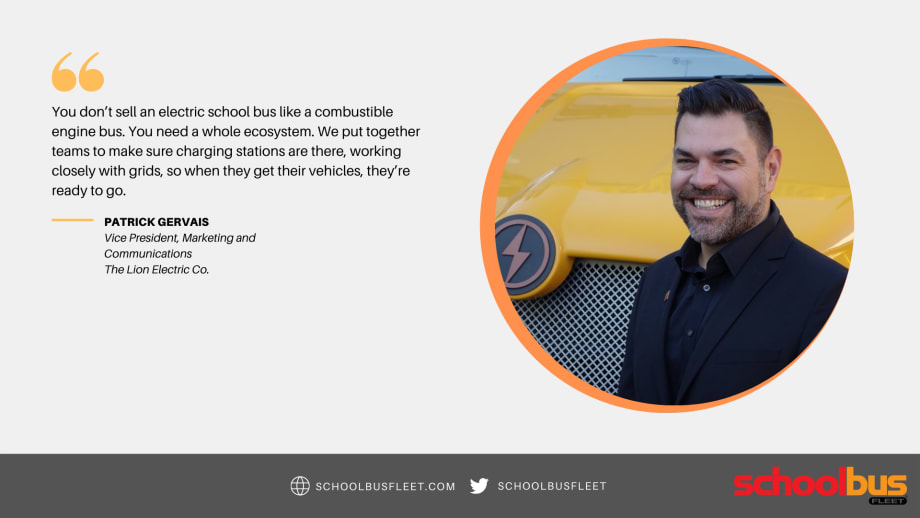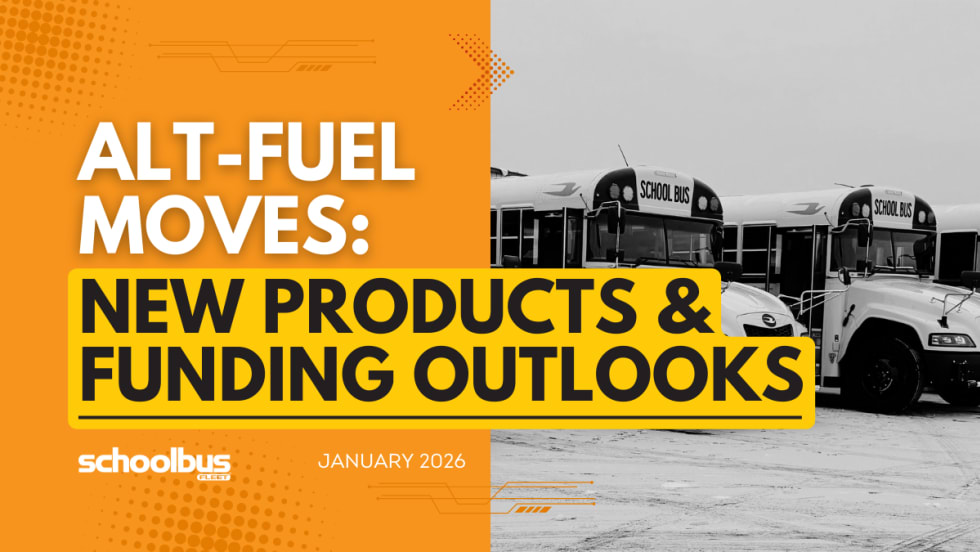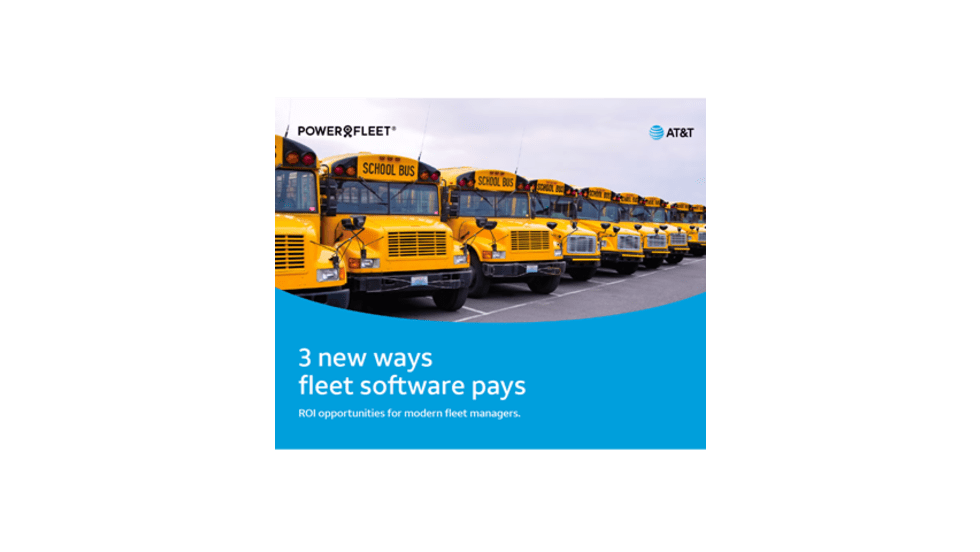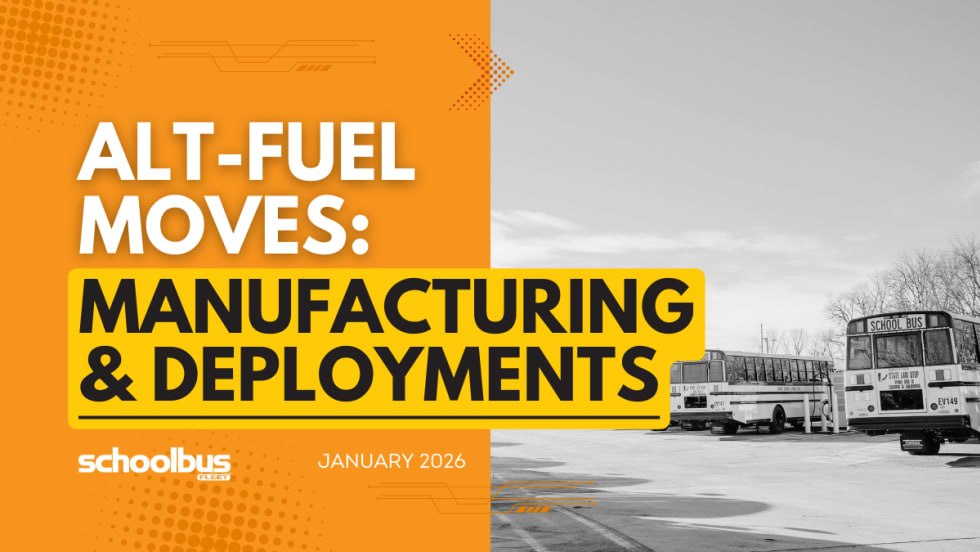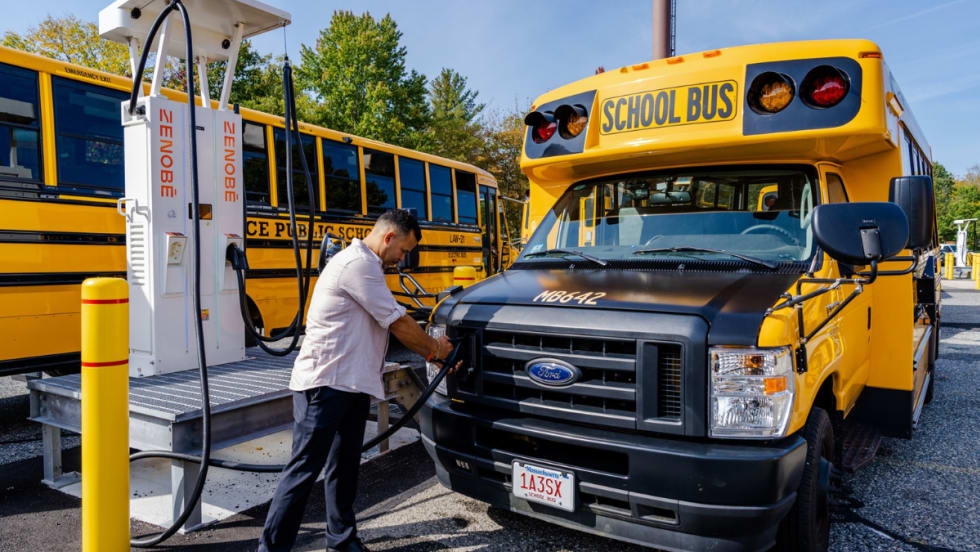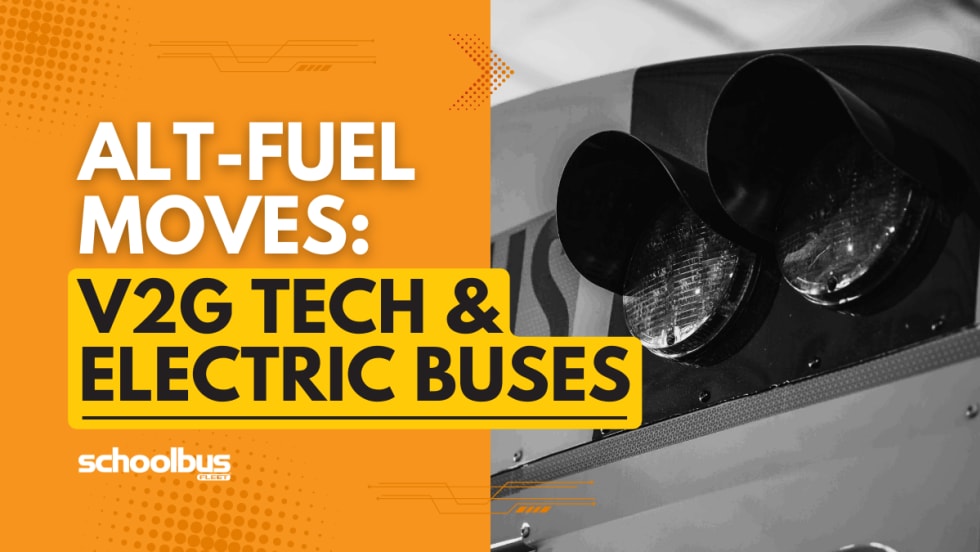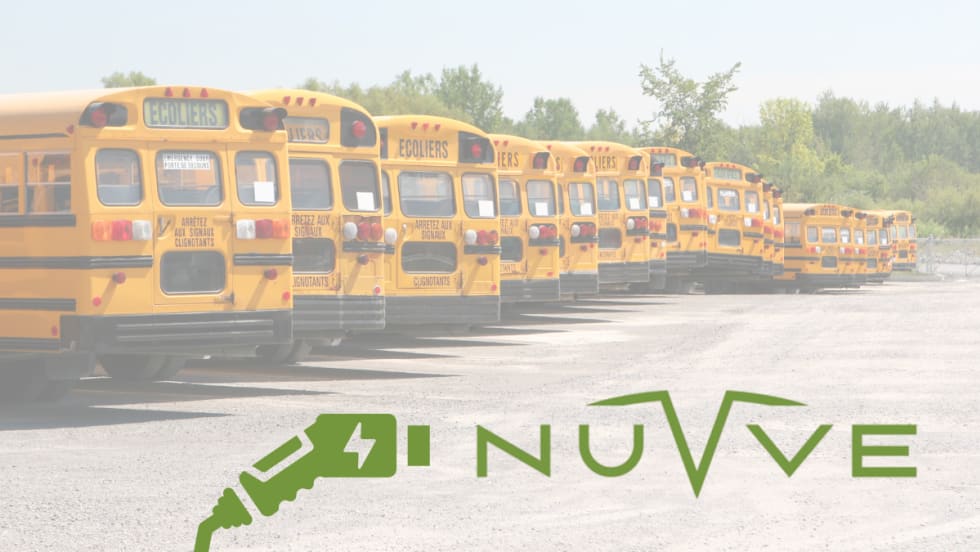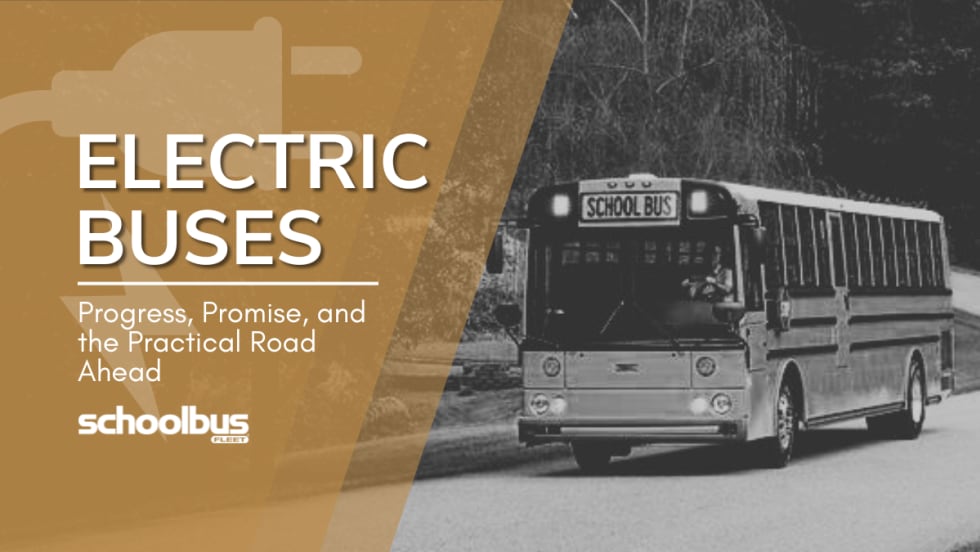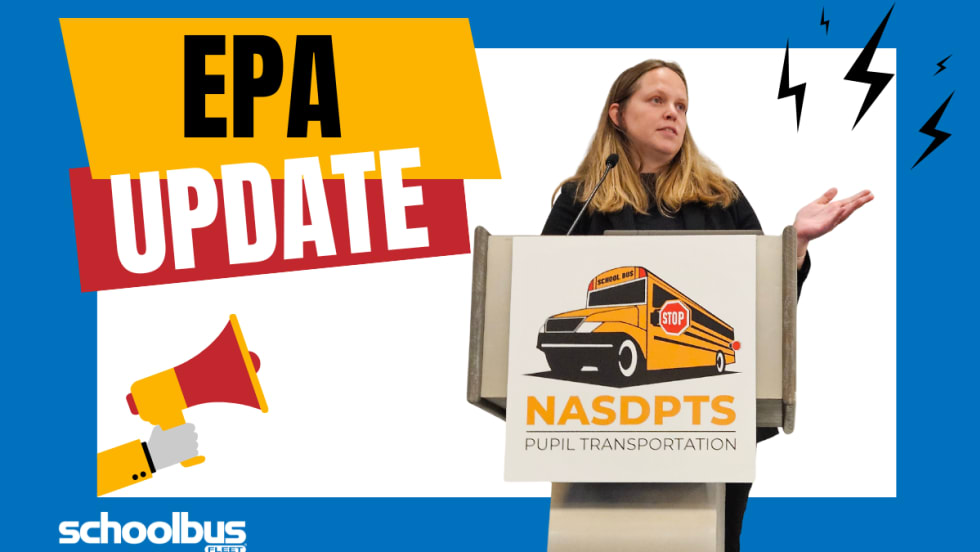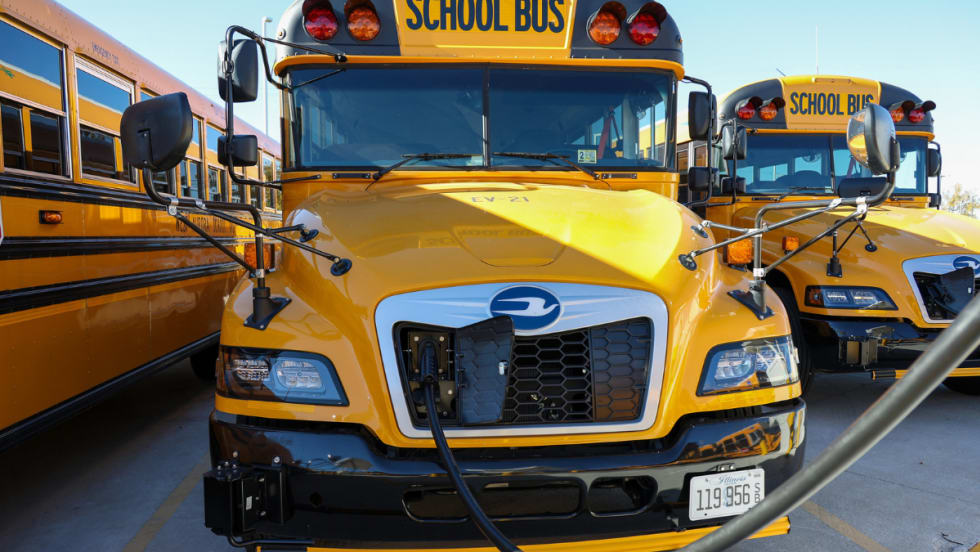From building new factories to pushing to reclaim momentum lost during the pandemic shutdown of 2020, electric school bus manufacturers are rolling forward with ambitions to make their vehicles more accessible and affordable.
Those ambitions could get a boost thanks to the federal government in August passing bipartisan infrastructure legislation, which includes billions of dollars for electric and low-emission school buses.
School Bus Fleet asked several manufacturers to give their forecasts for the coming year as we emerge from the COVID-19 pandemic:
SBF: How would you assess school bus industry market conditions for 2022?
Gervais: I think there’s a great vibe for electric school buses right now. Different governments are looking at the electric school bus segment. I think the future is bright. There’s a lot of engagement in Joe Biden’s plan to put some funding out there to speed electrification. It’s a great place to be in. There’s still a lot of work that needs to be done, in a good way, but 2022 is going to be a great year.
SBF: What kind of feedback has your company received at demonstrations/deployments of its electric bus?
Gervais: If you talk to someone who tried electric, they never want to go back to a combustion engine because electric has so many more advantages. Everyone knows about emission reduction, the lack of pollution, how easy it is to drive. But we also hear it takes a lot less maintenance and we have more uptime. The feedback is really amazing. There’s no noise, no bad smell, and people love it.
SBF: In August, the U.S. Senate passed the bipartisan Infrastructure Investment and Jobs Act, which includes $5 billion for electric and low‐emissions school buses. How do you think the increase in funding will impact the transition to zero‐emission/electric buses for school transportation?
Gervais: We would like all the funding to go toward electrification. The technology is available today. Why go with something that’s not 100 percent good for the environment and for the kids? But I strongly believe it’s a really good start. They have an objective to electrify 20 percent. We think we can provide 100 percent of school buses to the market. Obviously, it is a great start. As time goes by, prices will go down, and within five to seven years, prices will be close to combustion engines.
SBF: With more funding available comes an increase in demand. How is your company working to meet the increasing demand for zero‐emissions/electric buses?
Gervais: We are totally ready. We will have a manufacturing plant in Joliet, Ill., that can produce 20,000 vehicles a year. We have the mentality that we want to build where we sell and build a supply chain to reduce costs. We also announced that we’re building a battery manufacturing plant to make our own batteries. This will bring the cost down.
SBF: What lasting impacts do you think the COVID‐19 pandemic will have on the manufacturing side of school transportation? Particularly for electric school buses?
Gervais: While it has been a difficult year and a half for districts, the outlook is very positive for electric buses. This is just the beginning and momentum is continuing to grow – especially when you see historic investments in electric buses with the recent infrastructure plan in the US. This momentum of course means that manufacturing volume will only increase year-over-year. So now is really the time to scale manufacturing to be able to respond to future demand. More than ever, savings on fleet operations are critical for districts, and electric buses help to deliver those savings. Most importantly this means that school districts can put that money back into classrooms where it belongs. Electric buses will continue to become more affordable in the coming years with better range capability as battery technology increases.
SBF: How is your company addressing performance concerns, such as surmounting hilly terrain and coping with cold weather impacts on batteries and regenerative braking?
Gervais: Our buses were initially built out of Canada. If they can survive in the province of Quebec in the deep north, they can survive anywhere. We have more than 8-million driven miles in all sorts of weather. We know our vehicles have passed the test. There’s only a few liquids, and the composite body doesn’t rust. It can last a very long time.
SBF: What other kinds of changes or new developments do you see in the coming years for the industry?
Gervais: Honestly, more and more, it’s not *if* you’re going electric, it’s *how fast* you’re going electric. Making sure everything is in place. You don’t sell an electric school bus like a combustible engine bus. You need a whole ecosystem. We put together teams to make sure charging stations are there, working closely with grids, so when they get their vehicles, they’re ready to go. We need to speed things up as an industry. We’ve brought in the LionBeat telematics system, which can fix a lot of problems from a distance and improve vehicle performance. We also make sure trainings are available for mechanics and drivers so they can adapt to driving and working on an electric school bus. We have eight experience centers across North America and expect to have four more by the end of 2021. We need to educate how easy it is to transition to electric. That’s the biggest challenge right now.
SBF: Are there any new developments at your company that you would like to share?
Gervais: The two main things are the battery manufacturing facility in Quebec and the bus manufacturing facility in Illinois. The facility in Joliet will employ 1,400 people, not counting the vendors that Lion will be hiring. The battery facility will have a full team dedicated to getting range and performance of that battery to another level. This facility will be highly automated, but over a couple of years, 250 people will be working there. We’re also going to have some new models of electric buses and seven more new models of truck on the heavy-duty trucking side.




